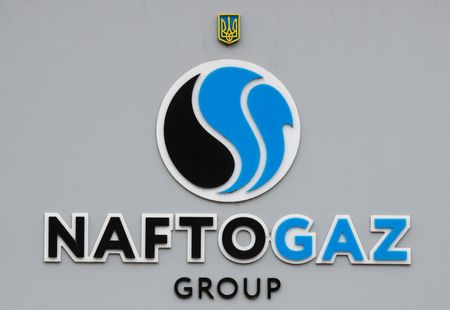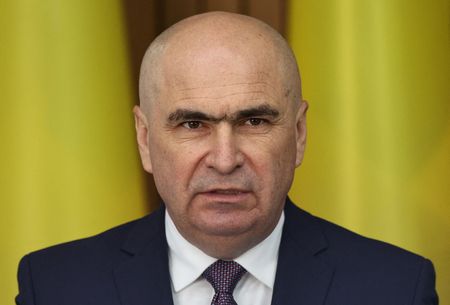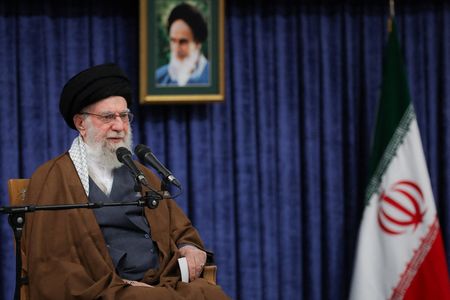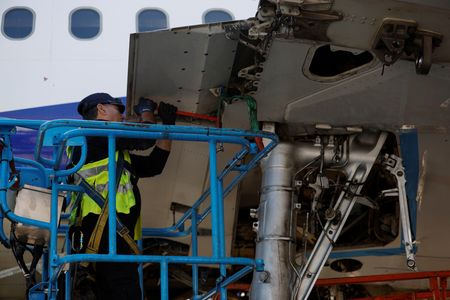LONDON (Reuters) -The European Bank for Reconstruction and Development is looking to step up its support for Ukraine’s state oil and gas company Naftogaz following Russian attacks on the country’s energy infrastructure this month, the bank’s president told Reuters.
Large and coordinated Russian air attacks on Ukraine’s energy infrastructure earlier in October forced the country to suspend activities at several major gas facilities.
Ukrainian President Volodymyr Zelenskiy said his country may need record gas imports worth around $2 billion from Europe, the United States and Azerbaijan this winter as a result.
REVOLVING CREDIT LINE TO NAFTOGAZ
EBRD President Odile Renaud-Basso told Reuters on Monday that the attacks had created a new challenge for access to heating for the winter.
“So we are looking about how we can step up,” she said.
The EBRD has a revolving credit line to Naftogaz that allows the company to buy gas up front and repay the bank once clients pay them. Since the beginning of the war, the EBRD has provided 1.67 billion euros ($1.95 billion) to Naftogaz in total, including 1.27 billion in financing as well as investment grants from donors.
“It has proven very effective to have access to gas and we are going to step up on that. We are working on it right now,” Renaud-Basso said.
She said that while the total amount of that support was not yet clear, the bank was trying to mobilize grant money as well.
“We have been calling our shareholders on that to also provide some grants because the borrowing capacities of the company is not unlimited,” Renaud-Basso said.
The EBRD has become one of the most important funders of Ukraine’s private sector since Russia’s invasion in early 2022, and so far this year has extended funding of close to 2.3 billion euros.
She added that in addition to power supply problems, human capital also remained a significant constraint for companies operating in Ukraine due to wartime displacements and the large-scale military mobilization.
Despite this, the economy was holding up, she said, with companies from agribusiness to logistics continuing to invest, despite the conflict.
“You see that in the economic figures – for a country in war, they’re quite impressive,” she said.
($1 = 0.8575 euros)
(Reporting by Libby George, Karin Strohecker and Simon Jessop; Editing by Emelia Sithole-Matarise)











